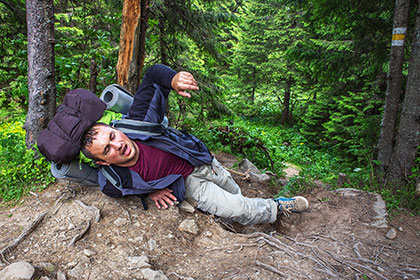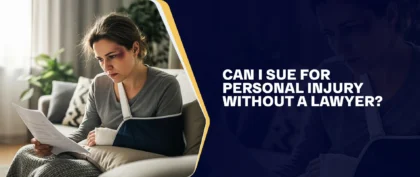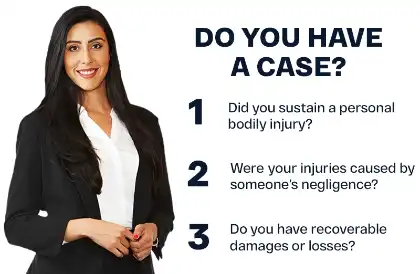Table of Contents
If you love the outdoors, California is one of the best places in the United States to live. There are many parks where hiking enthusiasts can enjoy fresh air, exercise, and relax in the great outdoors with friends and family. Some hikers utilize hiking companies to guide them through new trails.
Despite the fact that these hikes are done with the supervision of a professional, accidents can still happen. When an accident occurs on a hiking trail, you may wonder who is responsible and how you can seek damages. After suffering an injury on a hiking trail, an attorney can walk you through your rights and options.
The attorneys at Arash Law help injured Californians understand and uphold their rights. If you have suffered an injury in a hiking accident, we could help you, too. Contact our bodily injury lawyers at (888) 488-1391 to schedule a free case evaluation. We look forward to assisting you.
Causes Of Hiking Accidents

Each accident is unique, and what causes it can vary situationally. However, there are some common reasons hikers get into accidents. Common reasons for hiking accidents include:
- The Hiking Company’s Negligence — Hiking companies are responsible for taking care to warn hikers of potential dangers. A hiking company’s negligence could lead to serious injury, disability, disfigurement, and significant financial loss for the hiker.
- Hiker Error — A hiker may get hurt because of their own actions. For example, if a hiker goes off the marked trail and encounters a wild animal or breaks a bone, it may be difficult to connect another party’s actions to the hiker’s injuries.
- Health-Related Issues — A hiker may suffer health-related issues that cause injury. They may have trouble breathing after reaching certain altitudes during a hike. They might even suffer an asthma attack. The hiking company may be responsible for the hiker’s injury if they do not get emergency medical assistance to the hiker before their condition worsens.
Common Injuries For Hikers
If you regularly go on hikes, you know about the risk of injury while on a trail. Hiking is a way for Californians to get outside, breathe fresh air, and get great exercise, but that doesn’t mean exploring these trails is without risk. Common hiking injuries can include:
- Hypothermia
- Dehydration
- Sprains and Strains
- Broken Bones
- Sunburn
- Bug Bites
- Animal Attacks
- Slip-and-Fall Accidents
If you suffered an injury on a guided hike through no fault of your own, you may be able to pursue compensation depending on the specific circumstances of your case. The responsibility for causing your injuries can fall on different parties depending on the type of hike you went on.
State And National Park Trails
California has many state parks that hikers can enjoy. The state owns these trails, and as a result, government entities have certain legal obligations regarding trail maintenance and safety measures for hikers. If you get hurt while hiking in a state park (like Red Canyon or Butano), you may have a claim against the state. These kinds of lawsuits could be complex from the start. If you have a potential legal claim against a government entity, speaking to a personal injury lawyer may help you prepare a well-supported case.
City Trails
Injuries on city trails are more common than you think. Hikers who get hurt while enjoying a city trail may also have a claim against a government entity. Suing the city can be difficult and may require the assistance of an experienced attorney. Your attorney can also help build your case if the property owner or an employee’s negligence caused your injuries.
To establish grounds for a case, your attorney needs to establish that another party’s negligence caused your injuries. There are four elements of negligence that must be proven to validate your case, including the following:
Duty Of Care
A duty of care is a responsibility that people, companies, and entities owe to others to act reasonably to avoid causing injuries. For example, hiking companies have a legal obligation to act with reasonable care to reduce the risk of injury to hikers. The company may be obligated to warn hikers of potential dangers. If the hiking company fails to honor its duty to the hikers it serves, it has committed a breach.
Breach Of Duty
A breach of duty happens when a defendant fails to complete their duty to act reasonably. Examples of breach of duty can include a store failing to put a wet floor sign up, a driver running a red light, or hiking companies failing to warn hikers of dangers on the trail and, in some cases, the dangers of going off the trail.
Causation
The at-fault party’s actions must have caused the hiker’s injuries. To connect their injuries to their conduct, hikers should seek medical care immediately after an injury. Aside from preventing further harm, prompt medical care can help establish a connection between the injury and the hiking company’s conduct.
Damages
The at-fault party’s negligence caused actual losses to the hiker, warranting damages. These can include medical expenses, loss of time with a spouse or other loved ones, etc. The hiker must prove that the accident caused these damages.
What If I Signed A Waiver?
It is common practice for a hiking company to have hikers sign a waiver holding the company harmless from all injuries or damages. The waivers protect companies from personal injury lawsuits. Waivers, however, are not absolute. The enforceability of a liability waiver can be challenged, and it may not shield a company from responsibility for certain types of conduct, such as gross negligence.
Hiking Guide’s Insurance Policy
A hiking guide and the company they work for should carry general liability insurance and professional liability insurance. These two policies provide coverage if a hiker or a third party is injured while on the property or during a hike. Each type of insurance is explained further below.
General Liability Insurance
Although not required by law, most hiking companies have general liability insurance. General liability insurance helps business owners cover costs associated with injuries that may happen while customers are patronizing their business. Due to the risks associated with running a business, it can be helpful for companies to carry general liability insurance. General liability insurance can cover some risks, including:
- Damage to property.
- Bodily injury.
- Medical payments.
- Personal injury.
- Legal defense and judgments entered against the company.
General liability insurance also covers claims from third parties. For example, if a hiker asks you to take a group photo using their phone and it drops and breaks, you may be facing a lawsuit to compensate them for property damage. General liability insurance covers issues like this one and other third-party property damage claims.
Professional Liability Insurance
Professional liability insurance can be important for any business to carry, including hiking companies. This type of policy protects businesses from claims related to financial losses, mistakes, or negligence in the services or advice they provide. Examples of what a professional liability policy covers include:
- Negligence.
- Hiking guide errors.
- Inadequate hiking trail maintenance.
Insurance covers potential injuries. Hiking trails can pose safety concerns because of the inherent dangers of nature. In addition to the risks present in natural settings, hikers might leave the trail and get injured. Despite their deviation from the approved trail, a hiking company may still be liable for the injuries the hiker sustained while they were off the trail.
If you are a hiker who got hurt while on a trail, knowing whether the hiking company has both general liability and professional liability insurance can be helpful. If the company is covered, then you may have options to pursue compensation for your injuries and related losses.
How Much Does Hiking Guide Insurance Cost?
Insurance could come in handy if injuries occur during the guided hikes that a company conducts. However, it could come with a financial cost. Like other insurance policies, the cost of hiking insurance depends on your company’s risk. A hiking company’s insurance risk is based on the number of accidents your business has had and the time between them. Insurance rates are also largely based on where the business is located, the size of your company (such as how many team members you have), and the coverage limits you want.
Getting proper insurance could be considered a way to protect the hiking company’s financial future. To find the best rates, business owners can shop around. Speak to a licensed insurance agent to discuss rates and coverage options.
How Can An Accident Attorney Help Me If I’m Injured On A Hiking Adventure And Seeking Compensation?
If you have suffered an injury on a guided hiking adventure, consider seeking legal support. An attorney can review your case. If you have a valid claim, they could help you pursue the compensation you may need for your injuries. What follows are some ways a civil injury attorney can help during a hiking injury case.
Negotiate
Part of an attorney’s job is to negotiate on their client’s behalf. The defendant’s insurance company will likely try to contact you after an accident. You may be asked to give a written or recorded statement, but speaking to your attorney first may help you protect your claim. Your attorney might help you avoid making mistakes when providing statements like these, such as accidentally admitting fault for your injuries. They can also help you review settlement offers. If you choose to counter an offer, they could assist with negotiating another amount that considers your needs and losses, including current and future lost income and medical expenses.
Communicate
An attorney can take the burden of communicating with third parties off your shoulders so that you can focus on getting better. Accident victims with legal representation can have their injury lawyers handle correspondence from third parties, including insurance companies, debt collectors, and medical billing offices, until their case concludes.
Represent You At Trial
If a settlement cannot be reached through negotiations, then your case may proceed to trial. A civil trial might be an intimidating experience, especially if you have never been involved in one before. That said, you may wish to avoid going into a courtroom and presenting your case alone. An experienced personal injury attorney can help you avoid common mistakes that unrepresented plaintiffs make if their cases make it to trial.
Contact Arash Law
Arash Law has been representing injured Californians for decades. Our personal injury lawyers are available to speak with you about your hiking injuries and potential claim. Contact us at (888) 488-1391 or through our online chat feature to schedule a free, no-obligation case evaluation from one of our experienced attorneys.































